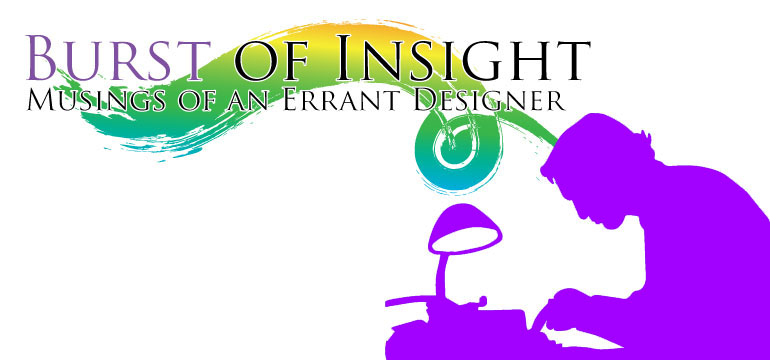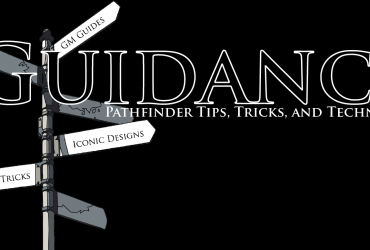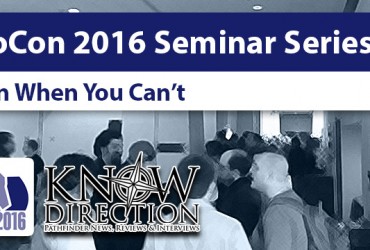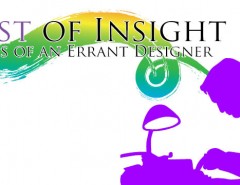Designers leverage the flexibility of the d20 chassis that Pathfinder is built on to build new rules systems that model the exact setting or mood they want to capture. For the last couple of weeks on both this blog and Monica’s Inspire Confidence we’ve been talking about kit-bashing and hacking your Pathfinder game into a Starfinder-esque game now and before that we talked a little about how adding or subtracting player agency emphasizes optimism or horror. All of this is part of a larger design discussion that you can make your game whatever you need it to be.
If you want super-heroic fantasy we have Mythic Adventures as well as a host of third-party mythic options. The optional firearms rules in Ultimate Combat combined with a judicious amount of redecorating and you can run a fantasy wild-west campaign. Throw in the technology guide and your wild-west campaign could become a dystopian fantasy future similar to Fallout but with magic. Optional rules abound, whether in Pathfinder Unchained or any number of third-party sources for a home game you can pick and choose which of these rules will suit your needs.
To illustrate, let’s revisit Ravenstone (from my May 31 blog), the nightmare plagued village of orphaned children. What “house-rules” might we apply to the setting to make it feel not only like a unique setting but a whole new game? Well first let’s look at how we want Ravenstone to feel.
A Ravenstone campaign should be dark, foreboding, and dangerous. The PCs aren’t towering heroes they’re children, trapped in a village full of secrets. Physical threats in the forest should but creepy and dangerous but a Ravenstone campaign needs to be about uncovering secrets and looming eldritch threats heroes won’t be able to fight head on. The campaign should hinge more on narrative elements than combat. Now we could build whole new mechanics but instead, let’s look at a few other options already available before settling on new rules that will need to be written.
For starters, let’s talk E6. If you don’t already know about E6, it’s a modification of the d20 rules that caps advancement at level 6 and was written by Ryan Stoughton. (PDF available here) Under this optional ruleset, sixth level PCs are the epic heroes. It’s a good start but we can do more to ground the characters. Rather than the normal heroic classes, we could further limit the PCs to the NPC classes: adept, aristocrat, commoner, expert, and warrior. With a lower point buy option, these characters will feel younger and be very different from your traditional adventuring party.
With so many tactical options taken from the PCs, we should consider giving them something else. Particularly, since the NPC classes are pretty dull PC options. To start, with investigations and roleplaying are going to be vital elements of a Ravenstone campaign so it seems obvious we could grant PCs additional skill points currently I think +2 points per level would suffice. I would also use the character traits rules and allow each PC to take a third character trait to help flesh out their backgrounds.
Other rules worth considering would include:
- Auras (Occult Adventures)
- Nemeses (Ultimate Intrigue) This and other rules options like Social Combat would depend on how I wanted the campaign to unfold…with just a setting for the moment it is on my list of things to consider but I’m not 100% sold on how vital it would be.
- Occult Locations (Occult Adventures) particularly, the revised haunt rules.
- Occult Rituals (Occult Adventures)
- Occult Skill Unlocks (Occult Adventures)
- Player’s Roll All the Dice (Unearthed Arcana) This simple change frees the GM to do more narration at the table and gives the Players something to do even when it isn’t their turn. As a GM I’ve really come to like this mechanic in other games systems. This does require a little more care if we’re using the E6 Conviction option but I think a slight reduction in Conviction points will be enough to keep this balanced.
- Research (Ultimate Intrigue)
- Sanity and Madness (Game Mastery Guide) until I get my hands on my copy of Horror Adventures and see if there is something better.
- Skill Unlocks (Pathfinder Unchained) PCs would only have access to the first (5 ranks) skill unlock but these could be interesting unique skills for the PCs.
- Social Combat (Ultimate Intrigue)
- Staggered Advancement (Pathfinder Unchained) Although I’d probably change up how XP is earned to reflect other changes in the game…sure you can earn XP for killing monsters but other threats and challenges should be rewarded as well.
It’s your game don’t be afraid to experiment with rules options that grab your interest. Changing up the options you are using can radically change the feel of your campaign by reinforcing the theme and mood of your setting.







I’m working up a new campaign, with four specific different epochs. The first will probably use a modified E6 (with NPC classes, I can’t believe we’re on the same wavelength here!) with a 10-point point-buy Pathfinder-oriented ruleset, the second will probably use a slow-xp, and 15-point point-buy Pathfinder ruleset, the third will probably use a middle-xp, and 20-point point-buy Pathfinder ruleset, and the fourth will move up to fast-xp, 25-point, near-mythic Pathfinder.
I probably should pick your brain for ideas.